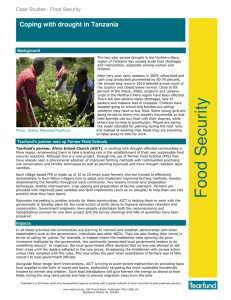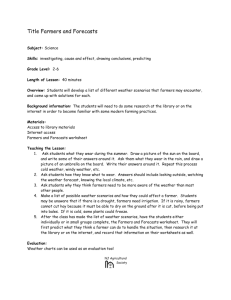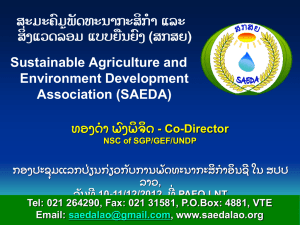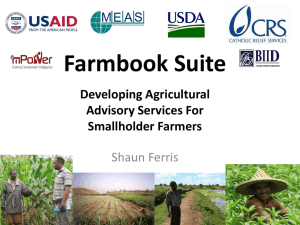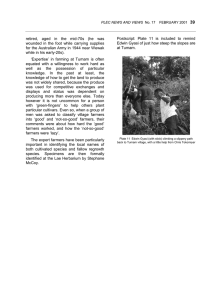Farmer Field Schools enhance food security in Myanmar Background
advertisement
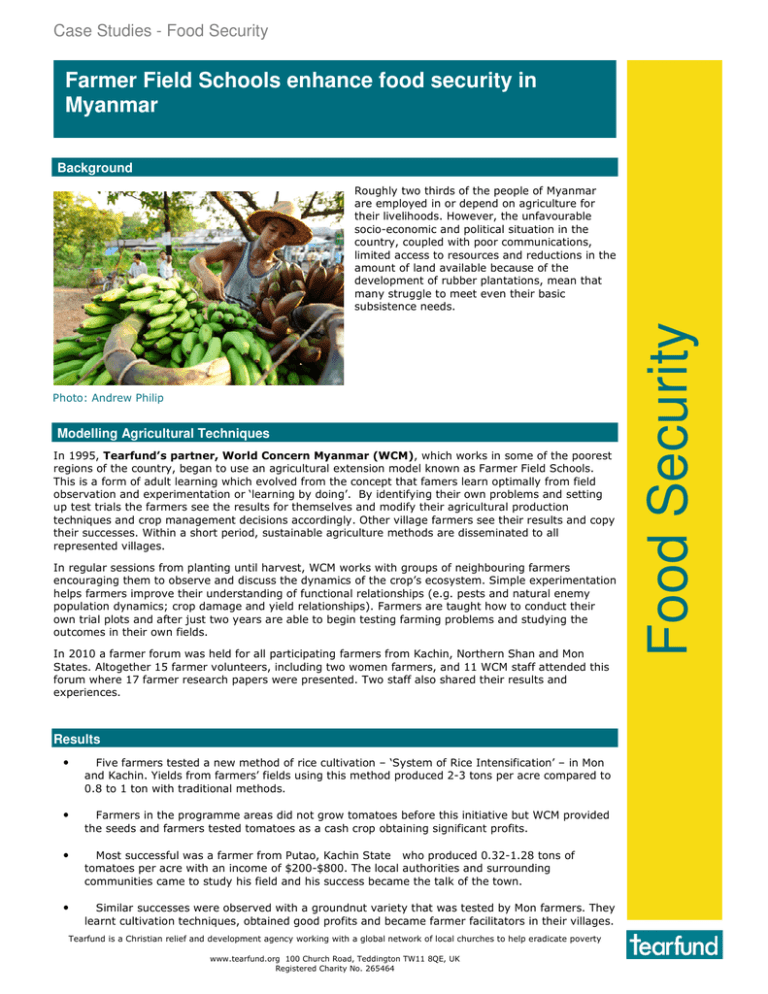
Case Studies - Food Security Farmer Field Schools enhance food security in Myanmar Background Photo: Andrew Philip Modelling Agricultural Techniques In 1995, Tearfund’s partner, World Concern Myanmar (WCM), which works in some of the poorest regions of the country, began to use an agricultural extension model known as Farmer Field Schools. This is a form of adult learning which evolved from the concept that famers learn optimally from field observation and experimentation or ‘learning by doing’. By identifying their own problems and setting up test trials the farmers see the results for themselves and modify their agricultural production techniques and crop management decisions accordingly. Other village farmers see their results and copy their successes. Within a short period, sustainable agriculture methods are disseminated to all represented villages. In regular sessions from planting until harvest, WCM works with groups of neighbouring farmers encouraging them to observe and discuss the dynamics of the crop’s ecosystem. Simple experimentation helps farmers improve their understanding of functional relationships (e.g. pests and natural enemy population dynamics; crop damage and yield relationships). Farmers are taught how to conduct their own trial plots and after just two years are able to begin testing farming problems and studying the outcomes in their own fields. In 2010 a farmer forum was held for all participating farmers from Kachin, Northern Shan and Mon States. Altogether 15 farmer volunteers, including two women farmers, and 11 WCM staff attended this forum where 17 farmer research papers were presented. Two staff also shared their results and experiences. Results • Five farmers tested a new method of rice cultivation – ‘System of Rice Intensification’ – in Mon and Kachin. Yields from farmers’ fields using this method produced 2-3 tons per acre compared to 0.8 to 1 ton with traditional methods. • Farmers in the programme areas did not grow tomatoes before this initiative but WCM provided the seeds and farmers tested tomatoes as a cash crop obtaining significant profits. • Most successful was a farmer from Putao, Kachin State who produced 0.32-1.28 tons of tomatoes per acre with an income of $200-$800. The local authorities and surrounding communities came to study his field and his success became the talk of the town. • Similar successes were observed with a groundnut variety that was tested by Mon farmers. They learnt cultivation techniques, obtained good profits and became farmer facilitators in their villages. Tearfund is a Christian relief and development agency working with a global network of local churches to help eradicate poverty www.tearfund.org 100 Church Road, Teddington TW11 8QE, UK Registered Charity No. 265464 Food Security Roughly two thirds of the people of Myanmar are employed in or depend on agriculture for their livelihoods. However, the unfavourable socio-economic and political situation in the country, coupled with poor communications, limited access to resources and reductions in the amount of land available because of the development of rubber plantations, mean that many struggle to meet even their basic subsistence needs. Case Studies - Food Security Farmers have become agents of change in their areas. They have learnt by experimenting and have increased their incomes. In some areas they have started seed banks to supply quality seeds to other farmers. They are conducting demonstration plots and opening their farms for others to see the results. Food Security • Tearfund is a Christian relief and development agency working with a global network of local churches to help eradicate poverty www.tearfund.org 100 Church Road, Teddington TW11 8QE, UK Registered Charity No. 265464
